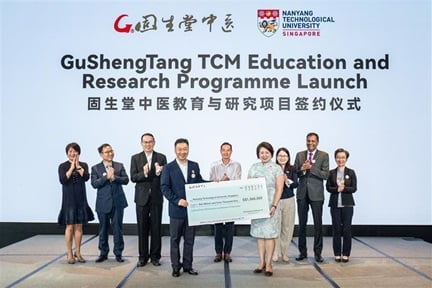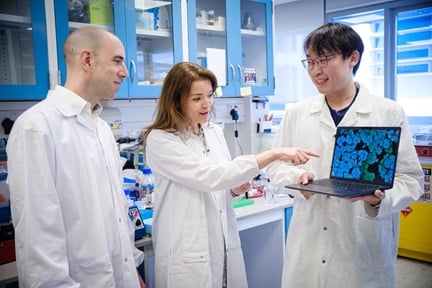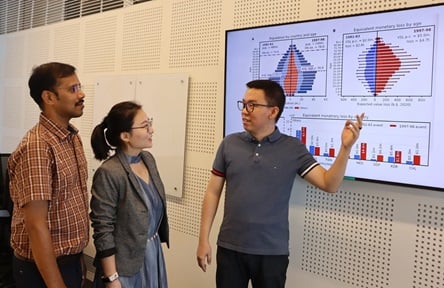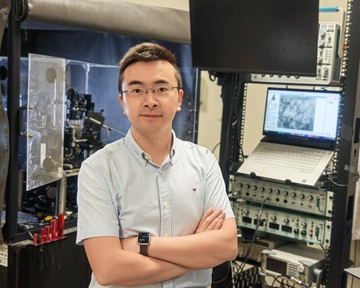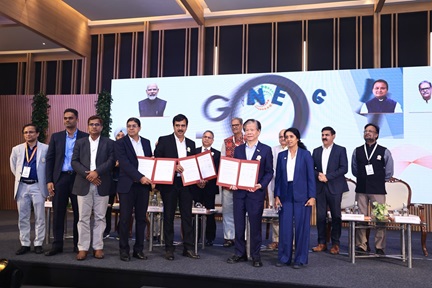NTU-SGH study finds reason why chemotherapy fails for some blood cancer patients
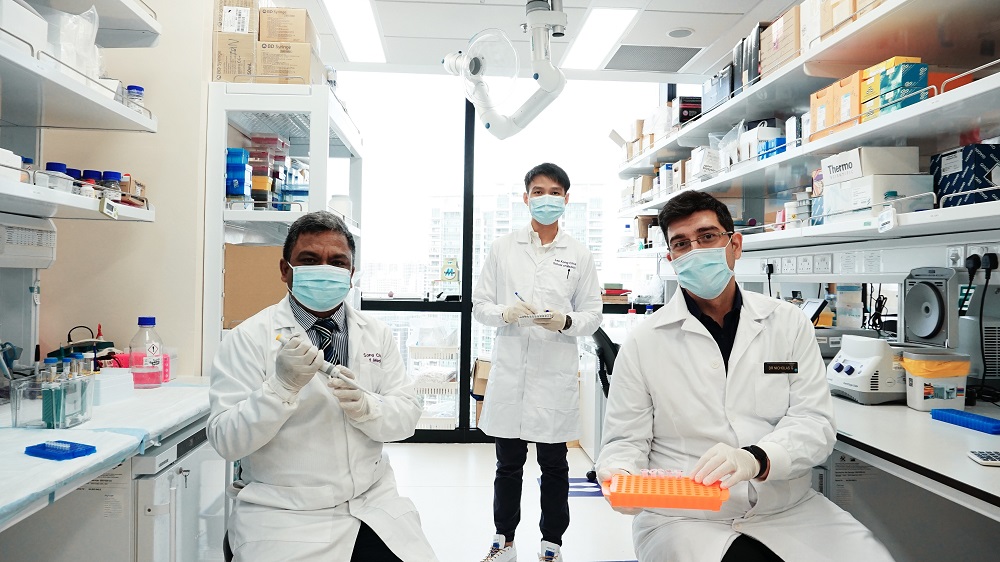
(L-R) The joint research team include LKCMedicine Asst Prof Navin Verma, PhD student Patrick Poh, and Asst Prof Nicholas Grigoropoulos, Senior Consultant from the Department of Haematology at SGH
Mutations in a crucial gene are the key reason that chemotherapy fails in some patients with blood cancer, a study by NTU Singapore and Singapore General Hospital (SGH) has found.
Lymphoma, a type of blood cancer, is the fifth most common cancer among males and the sixth most common cancer for females in Singapore, according to latest data from the Singapore Cancer Registry. Broadly divided into Hodgkin lymphoma and non-Hodgkin lymphoma, the cancer is often treated with chemotherapy regimens.
However, majority of patients with aggressive forms of non-Hodgkin lymphoma do not respond to traditional therapy, and a sub-group of patients who respond initially go on to relapse and progress to fatal outcomes.
Through advanced gene sequencing technology, the research team mapped cancer-causing gene abnormalities from samples of patients whose chemotherapy failed. They found that mutations in the gene DDX3X - a type of protein responsible for processing and transmitting signals for cell growth – is the possible culprit behind cancer cells’ resilience.
Upon further investigations, the team also found that STAT3 inhibitors - a substance in the body that interferes with biologic activity including growth and proliferation - killed lymphoma cells with DDX3X mutation (or altered DDX3X) more effectively than standard chemotherapy agents.
These findings provide hope that new and better drugs could be developed to block STAT activity and therefore improve the chances of survival for non-Hodgkin lymphoma patients with DDX3X mutations. Clinicians may in future be able to test for such mutations to have a better gauge of chemotherapy outcomes for patients with non-Hodgkin lymphoma.

